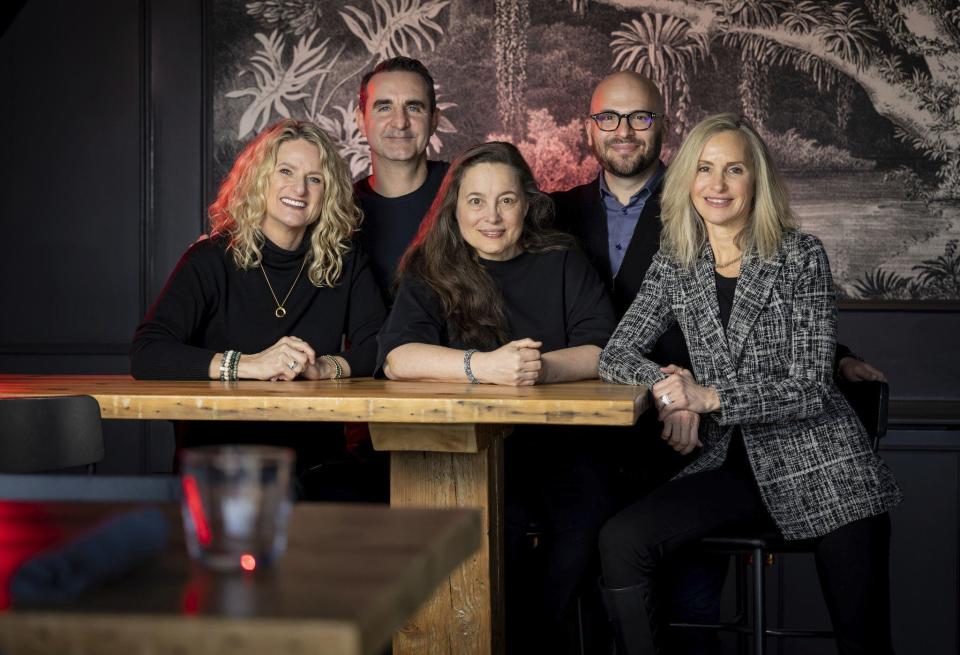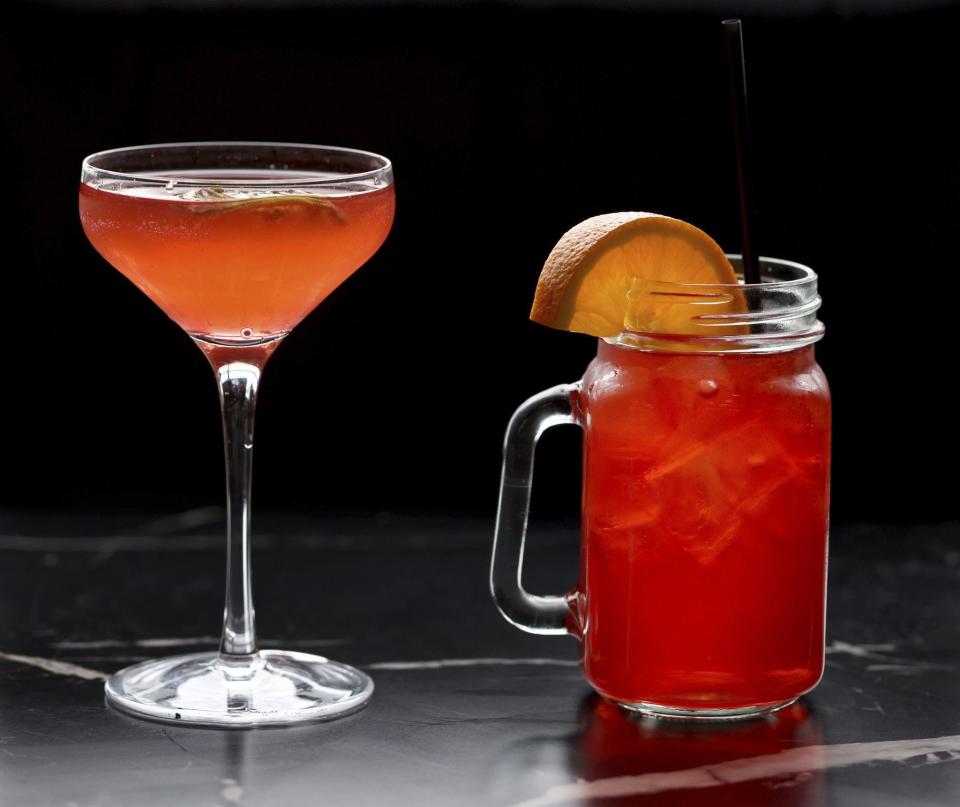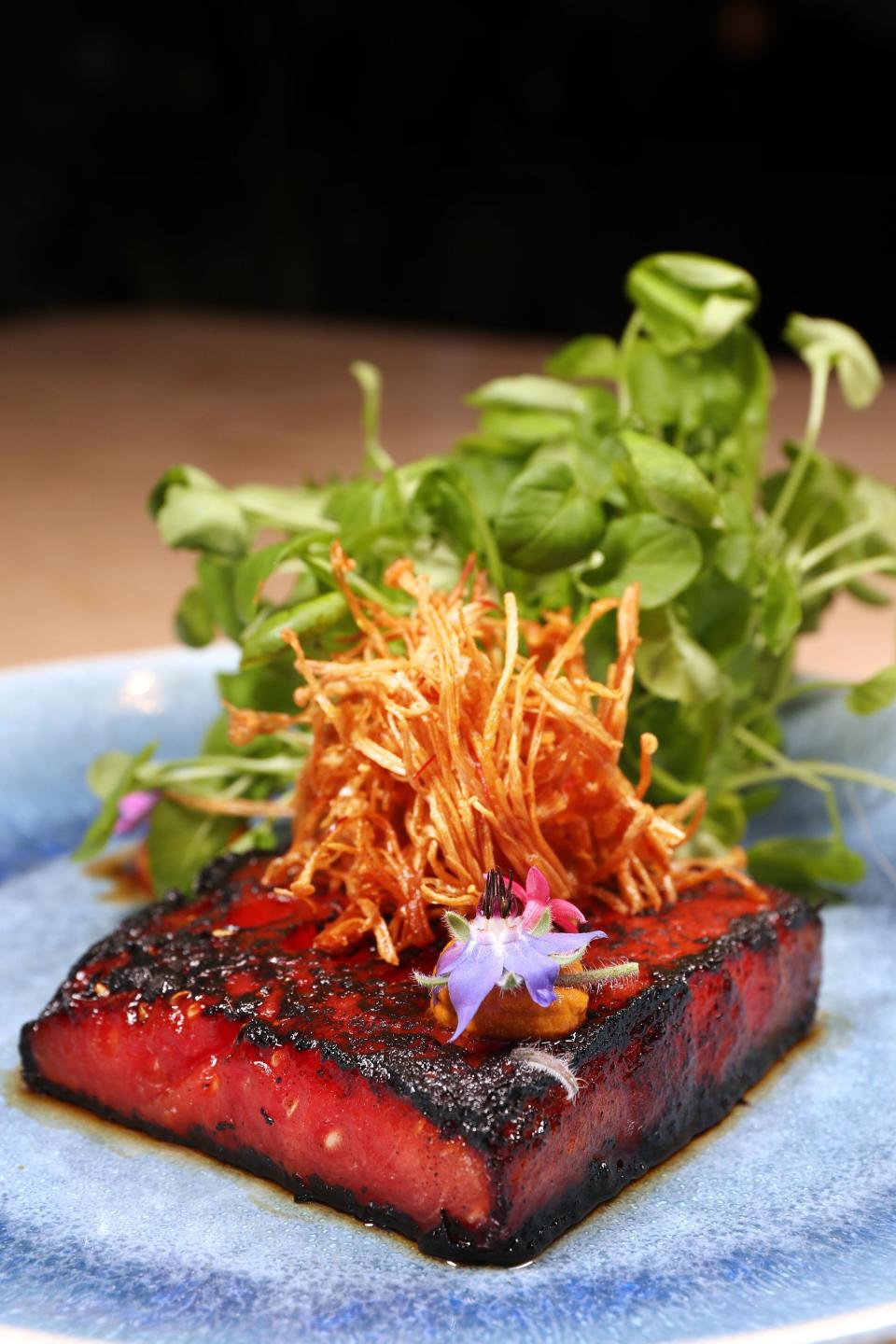Chicago chefs’ 2024 food and drink trend predictions: Colorful ingredients, transparent pricing and ‘girl dinner dates’
Trends come and go, and that extends to our stomachs. We sampled pickles in a blanket and sipped on purple milkshakes in 2023, and Chicagoans found new restaurants they loved, or frequented old haunts.
While it’s impossible to know for sure what funky flavors or dining experiences will pop up in the new year, the Tribune asked chefs and restaurant owners in Chicago, many of whom are considered the best and most innovative in the business, about how they expect the city’s food scene to evolve in 2024.
“Each and every little city has their own thing going and we don’t need bigger cities like (New York and Los Angeles) to tell us what to do and what we like to eat and what we are into specific to our region,” said Won Kim, head chef at Korean Polish restaurant Kimski in Bridgeport.
From a focus on transparent pricing and social equity to an emphasis on fun, photogenic ingredients, here are some of their top predictions. And maybe, just maybe, “girl dinner” is here to stay.
Origin stories
Knowing the faces behind the food or beverage will become more important for consumers, according to Cecilia Cuff, the co-owner of Bronzeville Winery. Authenticity outweighs perfection.
For example, she said a lot of the South Side business’s vegetables are grown by students from Olive-Harvey College. Telling diners that their food is partially grown by young adults learning about urban agriculture is more compelling than sourcing ingredients from thousands of miles away and creating a larger carbon footprint, she said.
One of their most popular desserts is cheesecake from Justice of the Pies, a bakery in Avalon Park founded in honor of the owner’s late father, and some of their bestselling wines are women- and minority-owned. Community stories set restaurants apart from the “factory experience,” she said.
“I think what’s out is looking at menu items and having the thing that comes from the furthest place and is the most exotic, and really it’s like what does that locality look like on your menu,” she said. “People want to know they’re spending money in places that have a social equity focus, and people care about the people making their food.”
Experimental eating
Eating at restaurants can often be quite expensive. When choosing to make the investment, Cuff expects many people to opt for dishes that look cool or interesting in pictures, or contain ingredients they’ve never tried before.
Innova Market Insights, a market research company, predicts that in 2024, as high food price inflation impacts consumers’ spending habits, “eye-catching” ingredients will prompt higher spending.
Cuff said ube — a purple yam native to Southeast Asia — has become a popular addition at Bronzeville Winery. Their bright purple ube latte, created in collaboration with VietFive Coffee, and ube desserts show up well in photos, she said. Customers were also interested in trying their seared watermelon as a vegan nigiri and steak.
“Whenever we put experimental things on the menu, people are always really interested in trying them,” she said. “Experimental eating is something that people are more open to now, which has been really fun.”
Non-alcoholic beverages
Some diners might say they’re “sober curious,” while others say they’re members of the NA movement. Whatever you call it, mocktails and other alcohol alternatives are booming business, especially among Generation Z and millennials, according to NeilsenIQ. Sales of non-alcoholic drinks in the United States increased by about 30% in the past year, according to the data firm.
This is a trend that lots of restaurants will continue to pay attention to, Kim said. More restaurants in Chicago will introduce separate cocktail lists, one with alcohol and the other without, or sell popular alternatives such as CBD and THC infused drinks, Kim predicted.
“People my age — especially like mid 40s — that still want to go out and not get absolutely annihilated, tend to veer towards either mixing it up with some NA cocktails, or imbibing in other ways,” Kim said.
New sauces, condiments
Fermented sauces might become even more of a staple in 2024, Kim said. Ever since the COVID-19 pandemic — when exploring preservation techniques became trendy — Kim has noticed more recognition of fish sauce, miso and kimchi.
“People are taking the idea of fermentation in a good direction, meaning they don’t have to rely on specific Korean recipes, they can ferment anything these days,” he said. “They figured out that a lot of vegetables and a lot of other explorative produce can be fermented and salted down or pickled.”
Kim also expects chili crisp oil to also gain more of a foothold this year. The spicy, crispy condiment has become increasingly popular nationwide, with many companies developing their own iteration, Kim said. Kimski still uses an in-house recipe, which Kim said puts the restaurant’s flavoring and versatility on display.
Humanitarian impact
Chicago Chefs Cook has raised hundreds of thousands of dollars for disaster relief in Ukraine, Ethiopia, Maui and other places. Chefs stepping up as leaders in their communities, and consumers dining at establishments with civically minded proprietors won’t go away in 2024, according to the nonprofit’s leadership team.
During the fundraisers, chefs often celebrate their heritage through the food they create, said Sarah Stegner, chef and co-owner of Prairie Grass Cafe, who is on the nonprofit’s leadership team.
“It highlights the uniqueness of Chicago, and our kindhearted spirit and how we can make a difference, but it is also a trend that you start to see intensifying,” Stegner said.
Younger generations are particularly interested in spending their dollars at places with social impact, said philanthropist Eda Davidman. She listed the sensory-friendly hours at Stegner’s restaurant as an example. The restaurant dims the lights and turns the volume of the music down to make the environment more accommodating for people who are neurodiverse or have other sensory sensitivities.
“People feel comfortable and people want to come to that and people want to support not only chef Sarah, but they also want to support the fact that wow, look, she’s making a difference in somebody’s life,” she said.
Girl dinner dates
The “girl dinner” trend took over social media last year, perhaps unsurprisingly as other trends surrounding the word “girl” showed up, from “hot girl walks” to “girl math.” The dinner variety usually involves a sparse, random collection of finger food, such as fruit, cheese or popcorn, that women often eat by themselves.
Cuff proposes that 2024 could bring a slightly elevated twist on this fad — women flocking to restaurants to enjoy their favorite comfort foods on “girl dates.” Maybe that food is fried shrimp, wine flights or Champagne, she said.
She said about 75% of diners at Bronzeville Winery are women or women-identifying, a statistic that doesn’t surprise her. Women are often planners, Cuff said, and they enjoy comfortable, warm spaces that are photogenic.
“I think it gives women a time to come together, to feel safe, to strategize, to vent,” she said.
Vegetable cooking
Any talented chef could cook a prime ribeye well, Kim believes, but there’s a lot of thought and technique that goes into making vegetable cooking successful. As more people take an interest in plant-based eating or reducing their meat consumption this year — either for environmental concerns or health reasons — he said this creativity will be on full display.
From carrots to stews, Kim expects chefs to maximize their flavors and use grilling techniques to make the dishes delicious and hearty. During the summer in particular, Kim likes to focus on produce for vegetarian specials.
Transparent prices
Consumers are often left in the dark about the true costs of running a restaurant, Kim said. In 2024, he expects more places to explain their costs and how they decide the pricing on various items.
“People understand why the pricing is and I’ll explain like, you know, black truffles aren’t an everyday item,” he said. “We’re lucky enough to have access to it but it’s gonna cost you.”

 Yahoo Finance
Yahoo Finance 













